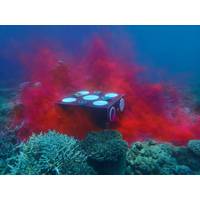
Subsea Technology Helps Coral Larvae Find Home
This week, researchers at Australia’s Southern Cross University and CSIRO gave hope that millions of coral larvae on the Great Barrier Reef can help replenish degraded reefs thanks to the development of a “larval seedbox.”Results from the first trial have found coral settlement to be up to 56 times higher across thousands of square meters of reef. Large scale operation is achievable as tens of millions of larvae can be collected during the annual mass coral spawning that occurs each November in the Great Barrier Reef.The development comes as global warming is crossing dangerous
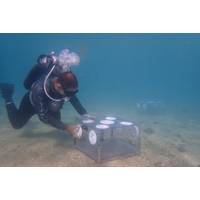
Larval Seedbox Boosts Coral Restoration
Millions of coral larvae on the Great Barrier Reef have an increased chance of replenishing degraded reefs thanks to the ‘larval seedbox’ - a coral restoration technology developed by CSIRO, Australia’s national science agency, with Southern Cross University.Results from the first trial of larval seedboxes have found coral settlement to be up to 56 times higher across thousands of square meters of reef.The trial was conducted at Lizard Island in 2024 and shows strong promise for use of seedboxes in scaling up coral restoration.Dr Christopher Doropoulos, Senior Research Scientist at

Scientists Explore Assisted Evolution to Help Coral Reefs
of approaches that involve active intervention to accelerate the rate of naturally occurring evolutionary processes. These approaches aim to enhance certain attributes such as temperature tolerance, growth, or reproduction.The aim is to enhance the spread of naturally warm-adapted genes across the Great Barrier Reef to buffer populations on cooler reefs against continued warming and bleaching
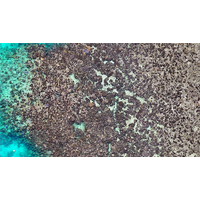
Drones Reveal Extreme Coral Mortality After Bleaching
New research has revealed coral mortality rates of 92% after last year’s bleaching event at Lizard Island on Australia’s Great Barrier Reef, marking one of the highest coral mortality rates ever documented globally.The team assessed the impact of the Fourth Global Coral Bleaching Event, declared by the National Oceanic and Atmospheric Administration (NOAA) in April 2024, which caused extensive bleaching and mortality across the reef system.Their findings, published in Coral Reefs, used high-resolution drone imagery to map coral bleaching in March 2024, returning in June to assess survival

AUV Exposes Coral Loss at One of the World’s Southernmost Reefs
revealed a barren seafloor filled with pale, lifeless corals, documenting the shrinking coral formations.3D digital twin of Hall Bank seabed with data from Hydrus. © Advanced NavigationThis comes at a time when both of Australia’s two world heritage-listed reefs—Ningaloo and the Great Barrier Reef—were simultaneously hit by coral bleaching in March 2025, driven by an intense marine heatwave that drove sea surface temperatures up to 4°C above the summer average.The Hall Bank site, regarded as a rare and valuable example of high-latitude reef resilience, was an ideal deployment
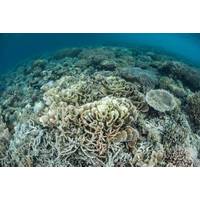
Global Coral Bleaching Crisis Spreading
list of 82 countries and territories registering bleaching-level heat stress in their waters.It will take scientists years to understand the global extent of coral reef death, but they say they have already observed widespread mortality in parts of the Caribbean, Red Sea, and along Australia's Great Barrier Reef.(Reuters - Reporting by Gloria Dickie and Ali Withers; Editing by Alexandra Hudson

The Future of Coral Reef Protection
fish abundance, diversity, length and biomass.By centralizing all this data in real time, they hope to generate predictive models that will help conservation efforts, enabling early intervention.Citizen scientists are also helping with reef conservation. Volunteers are helping with surveys of the Great Barrier Reef led by Citizens of the Reef. A census conducted late last year generated over 43,000 images. Using citizen observers and AI to review the images can achieve nearly the same level of accuracy as expert analysis.“Anyone with a few minutes to spare can help,” said Nicole Senn, head
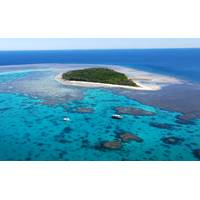
Integrated Data System for Coral Reefs Enables AI Analysis
monitoring system to help save the world’s coral reefs from further decline, primarily due to bleaching caused by global warming.Coral reefs worldwide are dying at an alarming rate, with 75% of reefs experiencing bleaching-level heat stress in the past two years.The World Heritage-listed Great Barrier Reef (GBR) has been decimated by severe bleaching events since 2016, exacerbated by ongoing crown-of-thorns starfish outbreaks and coastal development.A collaborative project led by the University of South Australia, with input from Queensland and Victorian researchers, is integrating remote sensing

Secretive Slugs May Unlock WA’s Hidden Marine Biodiversity
Australia’s coastline until now.Visiting from Pennsylvania State University, Adjunct Professor Benoît Dayrat from Curtin’s School of Molecular and Life Sciences said the research filled a crucial knowledge gap. WA’s northern coastline is incredibly biodiverse, rivaling the Great Barrier Reef, yet there are many species we still know very little about. More than 5000 marine species in the Pilbara and many more in the Kimberley have been documented over the past few decades, however groups such as the Onchidiidae family of marine slugs, remain poorly understood. This project places

 December 2025
December 2025





